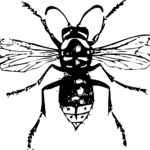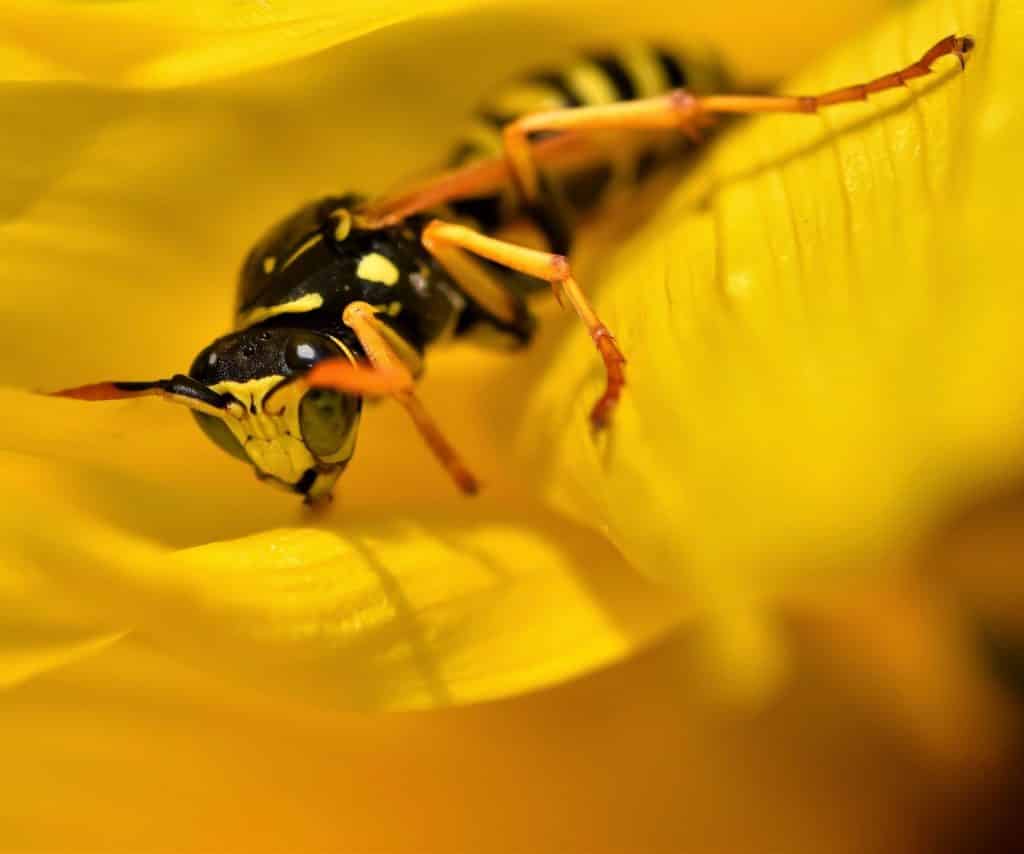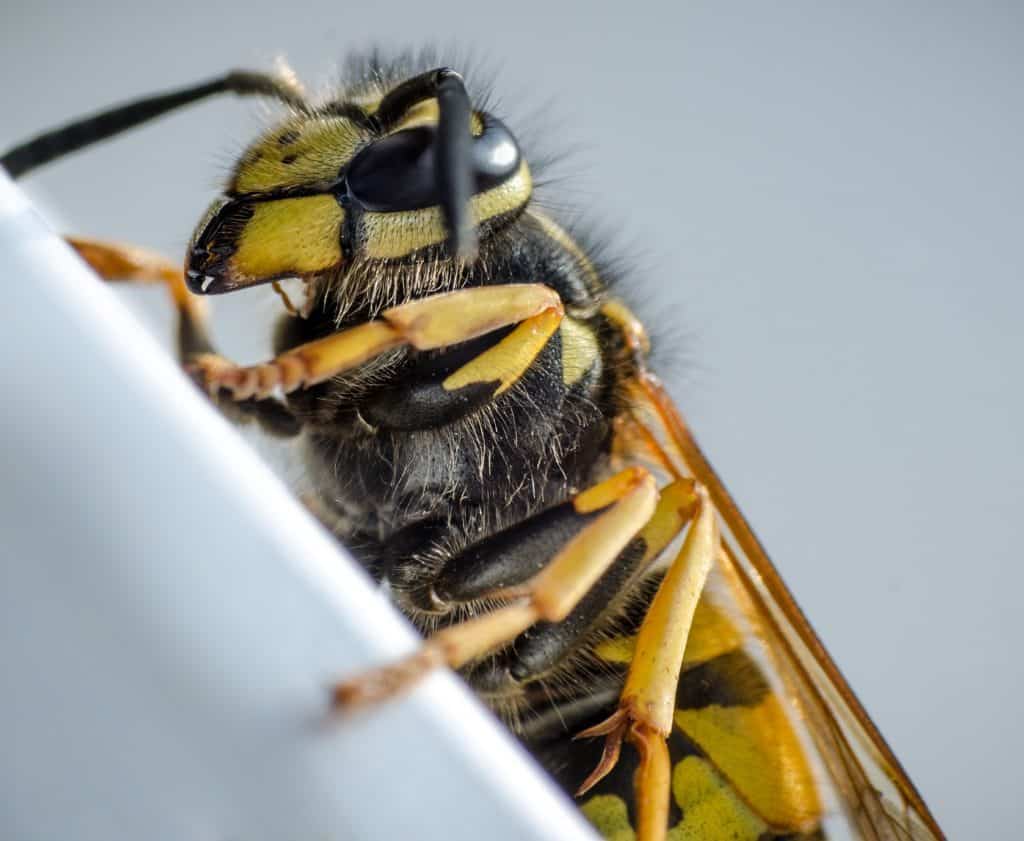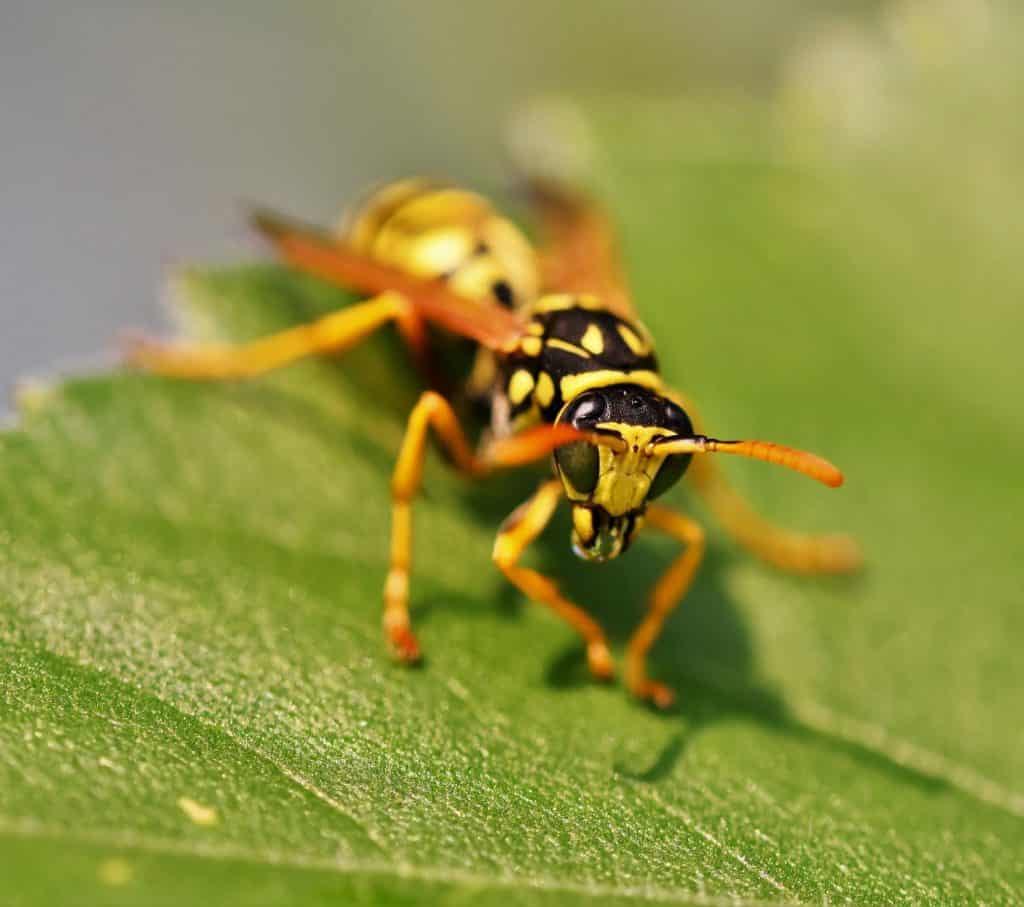
Leading Wasp Exterminator In Reno
Wasps gravitate toward flowers, gardens, trees, and shrubbery in their search for plant nectar. Unfortunately, they are stinging insects, and their stings are unsanitary and dangerous. Reno Pest Control Pros offers wasp nest removal and extermination services for times when wasp colonies get out of control.
Wasps often build troublesome nests and hives in backyards and rafters. They may enter your home or business through attics, open windows, garages, or doors. Like bees and other stinging insects, wasps can chew through plasterboard, wood, and various other materials, especially when agitated. Agitated wasps who become trapped inside your home or business can cause extensive damage that can be costly to repair, necessitating prompt wasp extermination.
If you suspect that you have wasp problems or other stinging insect issues, call us at (775) 305-3785 or message us to get your wasp removal and extermination started today in Reno, Nevada!
Request Your FREE Consultation!
Common Types of Wasps
Most wasps are pests, and there are several species of pest wasps commonly found in Nevada. There are 22 known paper wasp species in North America. Many, such as the annularis paper wasp, the apache paper wasp, the dominulus paper wasp, the dorsalis paper wasp, and the golden paper wasp, can be found in the Southwest. Other common wasp species include the potter wasps, mason wasps, spider wasps, and long waisted wasps.

What Wasps Look Like
Wasps tend to have a thin waist, six long legs, a triangular side profile, a pair of antennae, and two wings. Most wasps are dirty brown in color, but have yellow coloration.
Adult wasps share similar traits of yellowish-brown coloring, but sometimes they have bright lines or bolder, flashier shades of red or orange that can cause them to be easily confused with other stinging insects. Typically, adult wasps are bigger than adult bees, and range from 5/8 of an inch to 3/4 of an inch long.
Wasp Sting Risks
Wasp stings can cause side effects such as pain, irritation, allergic reactions, infections, nausea, and vomiting, and sometimes even death in infants, children, the elderly, and the immunocompromised. Wasps and other stinging insects are especially active from midsummer to early fall, and send over 500,000 people to emergency rooms each year.
Never attempt any DIY wasp removal treatments or approach a wasp colony, hive, or swarm without first contacting a licensed pest controller and putting on full protective equipment such as a complete bee suit. Periodically check for wasps and other stinging insects, and have an action plan in place should they appear.
Surviving Wasp Attacks
If you are attacked by wasps, run for immediate shelter inside a vehicle or a building, and then begin to remove any stingers. If you see someone else being attacked by wasps, advise them to seek shelter, but do not assist unless you are in a full protective suit, since angry wasps will also attack anyone they think is helping their attacker.

Wasp Sting First Aid
If you are providing first aid to someone who has experienced a wasp sting, the first step is to quickly remove the stinger. When removing the stinger, avoid pinching the stinger with tweezers or pliers but pop it out with something solid and flat like a credit card.
After removing the wasp stinger, do not pierce, rub, or scratch the affected area, since that causes the venom from the sting to spread. Once the stingers have been completely removed, remove all contaminated clothing. Cleanse the site of the sting with soap and warm water, and apply an antiseptic and a cold compress to reduce pain and swelling. If stung multiple times, remove all stingers before washing the affected areas.
Anaphylaxis
If the wasp sting victim was been stung more than 10 times, is feeling nauseated or ill, or if the reaction is more swollen than a small skin welt, seek immediate medical attention. In situations where a person’s immune system overreacts or underreacts to wasp stings, anaphylaxis can cause unconsciousness or death.
Wasp Nest Removal & Extermination Services
Wasp exterminations begin with identifying any standing water sources and plants that are providing possible nectar and other food sources for the wasp colony. We recommend inspecting water sources, flowerpots, and gardens for possible sources of attraction for wasps. Additionally, our wasp exterminator also looks for possible entrances that wasps may find to enter indoor spaces from outside.
Pest Wasp Extermination Treatments
When performing wasp exterminations, we always wear full stinging insect protective suits (aka “bee suits”) when treating wasp hives and wasp infestations. Our wasp exterminators are always very careful to ensure their and your safety as we apply insecticides and clean up multiple unwanted hives. We understand the risks that upset and agitated wasps pose, especially when the queen is threatened, and we will thoroughly mitigate those risks.
To achieve wasp extermination goals, we typically apply special-purpose insecticides such as Stryker Bee, Wasp, and Hornet Killer or Stryker 54 to kill the entire wasp colony, including the queen wasp. Depending on the species of wasp, we may also apply other effective pesticides such as Tempo Dust or PT Bee, Wasp, & Hornet.
For exterminating indoor wasp infestations, we may choose to apply Stryker 54, LambdaStar Ultra Cap 9.7, PT 565, D-Fense Dust, or Cyper WSP instead.
Wasp Prevention
Wasp colonies can survive for decades. Most wasps swarm once a year or less, but they do so when the colony outgrows its hive or the queen begins to age. While only one wasp queen lays eggs, other female wasps stay in the colony and tend to the eggs the queen lays. When the queen wasp dies, another female in the colony will take her place. Like bees and other stinging insects, wasps will swarm on occasion.
Wasps are not naturally inclined to be aggressive, even when they swarm. They will not attack unless they feel trapped or threatened. Wasps are defensive insects and will attack only if they feel that their colony or hive has been threatened.
For wasp nest removal or to prevent wasp infestations, ask your exterminator to look for and eliminate undesirable potential or actual hive locations. If a wasp hive is properly managed, wasps will leave you alone.



